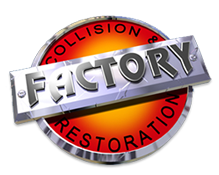A Mini-Glossary of Helpful Insurance Related Collision Repair Terms
When you’re in an accident, it’s (hopefully) a rare occurrence, but that means that you’re likely to run into a few insurance related terms you aren’t accustomed to hearing. That’s why we put together this list of useful insurance terms to help you through the process of dealing with a car accident.
Adjuster/Claims Adjuster – A claims adjuster works for an insurance company. His or her job is to settle insurance claims, so this is the person you’ll speak with when you call your insurance company. The adjuster determines how much the insurance company will pay, and interprets what the policy covers when a claim is made.
Carrier – A carrier, or insurance carrier, is the company that issues an insurance policy and pays out when a valid claim is made.
Collision Insurance – This type of insurance coverage is not mandatory, but it will cover the cost of repairing your vehicle when damage is caused by a collision with another vehicle or an object, like a tree. Regardless of who causes the accident, this coverage is for your vehicle only, not any other vehicle or property that was involved in the accident.
Comprehensive Insurance – This type of insurance coverage, like collision insurance, is not mandatory. It covers the cost incurred when your vehicle is damaged from something other than a collision, like theft, weather damage, vandalism, or a fire.
DRP (Direct Repair Program) – Many collision repair shops and insurance companies have contractual agreements that are intended to make the repair process easier, faster, and smoother. These agreements have set rules regarding repairs, standard procedures, record keeping, and more. DRPs have benefits and disadvantages – sometimes repairs can be done faster and insurance companies will cover certain things, but they may require shops to use less expensive parts. It’s a good idea to ask your collision repair tech about any DRPs they’re a part of.
Direct Repair Shop – A collision repair shop that participates in a direct repair program is called a direct repair shop. Remember that even if a collision shop participates in a DRP, you are not required to take your vehicle to that shop. The advantages and disadvantages of a DRP can vary.
Endorsement/Rider – This is a modification to your insurance contract.
Steering – When an insurance company tries to get a customer to take their vehicle to a specific repair shop, or does not let the customer choose their own repair shop, it’s called steering. In most cases, steering is illegal. You have the right to take your vehicle to any repair shop.

Recent Comments